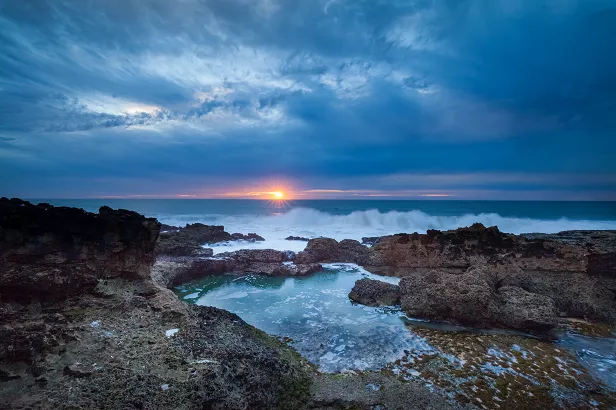
January 31 2023
A new year often brings new challenges and new opportunities, and the start of 2023 was no different. California charged into the new year facing nine atmospheric rivers that pummeled the state’s coastline and flooded communities all around the state. The total cost of damage is estimated to be in the billions of dollars.
These storms have been stuck in my mind for a number of reasons, one being that this catastrophic event highlights the cost - both financially and socially - of the climate crisis, and how unprepared the state is to address those costs.
It’s no secret that a money-hungry, extractive economy fueled the climate crisis. It’s also no secret that money will be required to help solve and protect against it.
Fortunately, during the last two budget cycles, the state committed $54 billion over five years for climate priorities. This included investments in both tackling climate change at its source - reducing emissions by ramping up clean energy - and mitigating the worst impacts that Californian communities, especially frontline black and brown neighborhoods, will bear.
So I was a bit puzzled when, on January 10th (amidst climate crisis-caused emergency), the Governor announced his budget proposal for 2023-24 and submitted that the state should rollback some of these vital climate investments. While I acknowledge his proposal maintains a good chunk of investments for climate commitments, the governor is proposing to cut or delay a stark $6 billion, with most of those cuts or delays in key programs that benefit low income and underserved communities facing the worst of the climate crisis.

The rationale for these cuts is the state’s fiscal reality: California is facing a $22.5 billion deficit due to the precarious nature of our economy. However, programs that protect the most vulnerable Californians should never be the first on the chopping block.
For instance, previously the Governor and legislature allocated over $900 million for the Equitable Building Decarbonization program, a program that provides efficient electric appliances and other improvements to low-income families. The program is modeled so that it specifically engages community-based organizations and ensures protections for at-risk renters. This program is key for getting gas out of communities that have been most negatively affected by its health hazards. In this year's proposal, the governor suggested slashing that money by nearly $100 million, and delaying $370 million to later years.
The governor also proposed slashing coastal protection and adaptation program funding by more than $450 million. These programs at the State Coastal Conservancy largely benefit systematically excluded coastal communities and tribes, and are especially salient given the coastal devastation caused by the recent storms.
Finally, the governor proposed over $2 billion in transportation cuts, which includes slashing public transit funding, funding to transition the dirtiest of diesel trucks to zero emissions, and investments in zero emissions infrastructure in low income communities. The transition to zero emissions transportation is incredibly important for communities already burdened with some of the worst air quality in the country.
While the state may have the opportunity to receive federal funding from the Inflation Reduction Act, and Infrastructure Investment and Jobs Act, that funding alone will not be enough to fill the gaps and put California on track towards a green, equitable economy for all.
In times of economic uncertainty, budget negotiations are never easy, and tough choices must be made. While there's always room for some trimming, there's also a point when you stop cutting excess and you start cutting bone. Equity programs are that bone - they provide crucial support to those most vulnerable to the impacts of climate crises like the ones we saw earlier this month, and they are key mechanisms to curb the future impacts as well.
The budget process can be convoluted and opaque, (It doesn’t have to be! Watch our breakdown in the Legislative Webinar we recently held here) but legislators hearing from constituents on what they’d like to be maintained and protected in the budget can go a long way. So call your legislator today and tell them to protect the state’s climate commitments. Now more than ever, it’s important to make your voice heard.
Sincerely,
![]()
Brandon Dawson
Director
Sierra Club California is the Sacramento-based legislative and regulatory advocacy arm of the 13 California chapters of the Sierra Club.
Please consider making a monthly donation.